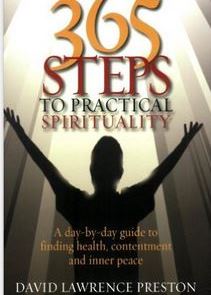Meditation is highly beneficial and easily learned. I recommend you start with the method developed by the late Dr Herbert Benson – a leading health researcher – and his colleagues. It is effective and has no religious associations.
- First find a quiet place, sit quietly in a comfortable position and close your eyes. Sit in a firm-backed chair with spine erect and hands either on the lap or the arms of the chair; or cross-legged on the floor with hands in lap.
- Relax all your muscles in turn, starting with your feet and moving progressively to your head and face. Affirm, ‘I now relax and let go’. Release any tension gently, and turn your thoughts inward.
- Pay attention to your breathing. Breathe naturally through your nose. Don’t force it. As you breathe out, silently and mentally say the word ‘One’. Breathe in. Breathe out – say ‘one’. Breathe in. Breathe out – say ‘one’ – and so on. When you breathe in, imagine you are breathing in Universal Consciousness, connecting you to your inner power and integrating it into all aspects of your existence.
- If your mind wanders, keep bringing it back; it is not necessary to empty the mind of all thoughts. Stay centred, calm and peaceful.
- Just maintain a passive attitude and let it happen at its own pace. If necessary, stretch, or get up and move around and try again.
- Don’t worry about achieving a deep level of relaxation. Worry interferes with the process, and in any case the more you practise, the easier it becomes.
- Build up slowly. Meditate for 10 minutes at first, then build up slowly to 30 or 40 minutes or even an hour. You may open your eyes to check the time, but do not use an alarm.
- To finish, sit quietly for several minutes with eyes closed, then open them and sit for a few minutes more. Take a few deep breaths and ease yourself back into normal activity. When finished, get up and go about your usual business.
Meditation is not complicated. Practice, but don’t expect miracles. You may find your first few meditations frustrating, but don’t worry, a wandering mind is part of the process. Some sessions are bound to feel better than others and there will be periods when you seem to be making no progress. This is quite normal.
When you learn to meditate, you take huge strides forward in other areas too:
- You become more aware and accepting: of yourself, other people and what is going on around you.
- You are more aware of synchronistic events, and able to make sense of them.
- You understand that everything and everyone is exactly as they should be. (Before you protest that there are too many injustices in the world to take this view, please appreciate this is not a recipe for inertia and complacency. If you decide change is necessary and resolve to do something about it, this too is exactly as it should be.)
- You become more forgiving: you gradually cease bearing grudges, clinging to resentment and looking for someone or something to blame.
- You are in touch with the voice of your inner conscience, and have the courage to act on it.
- You realise that the only certainty in life is uncertainty: that everything is impermanent and nothing ever stays the same.
When you meditate, you experience a state of inner tranquillity that can carry you through even the most stressful situations. Your inner self assumes a progressively greater role in your life, bringing feelings of happiness and peace previously unimagined. Isn’t that exactly what you want?
You probably won’t have any extraordinary mystical experiences, but this isn’t the point; your life will certainly change for the better!
©David Lawrence Preston, 30.6.2016
Follow me on Facebook and Twitter @Feelinggoodatt
How to Books, 2007


